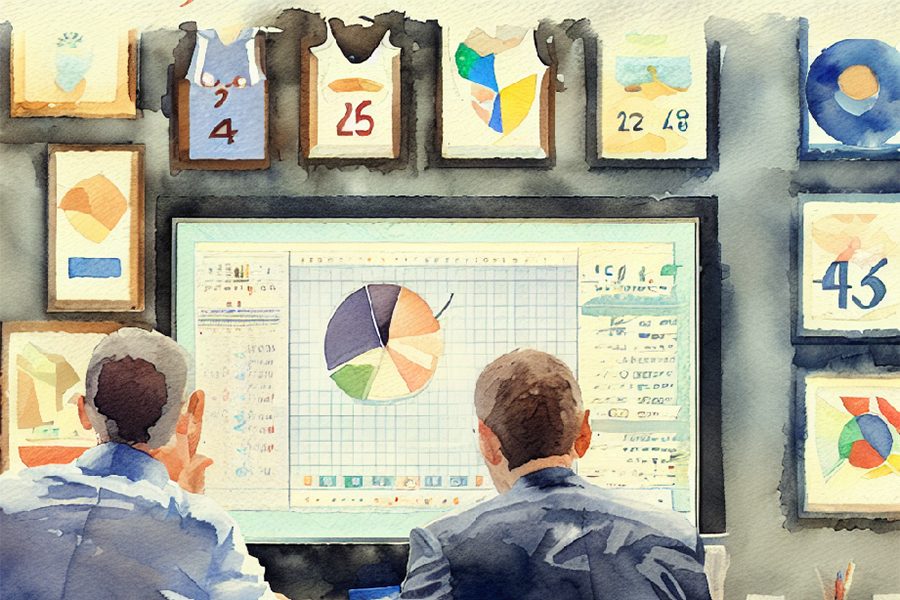Destiny Family Office specializes in helping high-net-worth collectors understand, account for, and protect the financial might of their collections, both for themselves and their families. Here, we discuss the many challenges that heirs of high-net-worth collectors may face upon inheriting a collection.
If you have a valuable collection you’d like to include in your financial, tax and estate planning in an effort to prevent those challenges, contact our Destiny Family Office team today. And don’t forget to self-assess your planning to date by completing our Collectibles Scorecard.
Many collectors take a set-it-and-forget-it approach to managing their collections. Motivated by their passion, they pay a price to acquire a piece, add it to the collection, and then effectively ignore its valuation and changes to it for the foreseeable future. Rather than engage in proactive management, they wait for some vague, undefined moment to take stock of their collection’s worth.
The popularity of the ignorance-is-bliss strategy is not surprising, as collectors are often reluctant to introduce financial stress into their cherished hobby. Even for those not motivated by the potential financial outcomes a collection could deliver, this is a suboptimal approach. Bliss today might mean calamity tomorrow.
By staying current with their collections’ valuation, collectors can more effectively attend to various financial matters. Conversely, by choosing to stay willfully ignorant of that valuation, they introduce undue risk that can tempt catastrophe. Consider the areas in which regular valuation might prove useful or even essential.
Financial and Portfolio Management
Modest collectible acquisitions can become six-figure or even million-dollar prizes after years of appreciation. What a collector considered to be a small part of their overall financial picture may grow to represent an uncomfortable or surprising percentage of total net worth. Without pursuing current valuations for their assets though, they may remain unaware of this growing concentration.
Ignorance here may result in a total misunderstanding of the composition of a collector’s net worth, including its risk profile, volatility, and potential for large drawdowns.
An investor wouldn’t want to be oblivious to the size of their equity allocation relative to their fixed income. They wouldn’t ignore the magnitude of their allocation to private equity just because the funds won’t return capital for several years. If they did, they would make suboptimal portfolio decisions incongruent with their financial goals and tolerance for risk.
Why, then, would ignoring the size of a collection be a prudent decision?
Of course, it wouldn’t be. Unfortunately, unlike with the traditional investment classes mentioned above, we don’t see our collectible assets on a ticker or receive quarterly reports from fund managers that detail our positions. Instead, collectors need to be more proactive. By engaging an appraiser, they can get accurate, rigorously researched valuation information that will clarify the financial standing of their collections and their place within their broader balance sheets. Only with that understanding can they make the financial decisions – both inside and outside of their collections – that most appropriately suit their financial profile.
Opportunistic Selling (or Buying)
Obtaining a more current valuation for collectible assets may also open a collector’s eyes to the current state of the market, which presents opportunities to transact accordingly. For instance, upon learning that their piece of memorabilia has multiplied in value by a factor of 20, reaching a valuation they never thought possible, a collector may find the motivation to explore selling. Perhaps emotional connections to an item render its valuation meaningless, but as some like to say, everyone has a number. Collectors may not find their item has reached that magical number until they conduct an appraisal.
However, a more accurate sense of the state of the market doesn’t have to encourage sales exclusively. Rather, a significant downturn in the market, as reflected by a much lower valuation for a collector’s items, may pique the collector’s interest in adding to their collection. An “if you liked it at $50,000, you’ll love it at $25,000” type of situation.
To act opportunistically in collecting markets, a collector must be aware of the opportunity. Some will be too busy to follow the markets and their trends in value and taste. But by exercising periodic diligence around the valuation of their collections, they can become better attuned to the condition of markets, particularly the subcategories that most interest them. It may be the difference between acting on that buying or selling opportunity of a lifetime and wallowing in regret years later.
Insurance
Perhaps the most practical and crucial reason to seek appraisals for your collection is for its ongoing protection. A stale understanding of valuation may leave collectors woefully underinsured and vulnerable to damage, theft, and catastrophe without recourse. Similarly, some collectors may not experience the motivation to pursue insurance coverage until they become aware of the magnitude of their collection’s worth. As their collections expand in scope, collectors should welcome any wake-up call that prompts them to act.
Those who have found that motivation previously should not rest on their laurels, as collectible assets are often prone to significant shifts in value. Take for example owners of Mickey Mantle’s 1952 Topps rookie card. Perhaps they slept easily after insuring their collections in 2019. But by early 2021, the card had doubled or even tripled in valuation, increasing even further into 2022. Those who owned a PSA 7 copy of the card watched its worth balloon from under $100,000 to as high as $468,000 before settling into the mid-$200,000 range.
Would their existing coverage suffice in the event of an incident?
To ensure adequate protection, collectors must understand what they own and its worth. Otherwise, they’re likely to pursue only half-measures that might result in bitter outcomes. Better safe than sorry.
Estate Planning
Estate planning can be complicated, but it gets even more complicated if collectors have little understanding of the total value of some of their most prized assets. To be efficient in decisions around gifting, disposition, and bequeathing, collectors need to understand what their collections are worth. Otherwise, they invite several risks:
- Their families are left to make sense of a collection they don’t understand
- Their estate tax burden is bigger than expected (and hard for heirs to meet through liquid assets alone)
- They miss opportunities to solidify their legacy and efficiently dispose of their collections while living
Knowledge is power, and by recognizing their collection’s worth, collectors are better equipped to make decisions around the use of our lifetime and annual gift exemptions, our philanthropic contributions, and the structure of our ownership of assets. Without that knowledge, they’re more likely to leave their collection’s fate vulnerable to various complications after our passing (taxation, proper management, etc.). For some, the answer will be to get the collection out of their estate altogether by gifting it while living, using it for philanthropic purposes, or selling it to simplify. For others who want their collection to exist for generations to come, more extensive planning might be required.
Either way, when armed with accurate valuation information, a collector is better prepared to engage with the proper planning professionals to begin strategizing on a plan that best suits their desires and the needs of their family.
Liquidity Opportunities
Selling is not the only way to generate liquidity from a collection. Lenders have become increasingly amenable to issuing loans collateralized by various collectible assets, though this practice is most prominent in fine art. To obtain that type of loan – or to even conduct a thought exercise exploring what level of borrowing might be possible – a collection appraisal would be required. The lender will determine the collection’s loanable value, meaning how much they’re willing to lend relative to the overall value of the collection (typically expressed as a percentage).
To ensure that the collection still provides the lender adequate protection versus the size of the loan in the event of default, regular valuations will be conducted on an ongoing basis. If the valuation falls below the requisite levels, the borrower may be required to provide additional collateral or otherwise repay part or all of the loan. For those who collect in volatile categories, this structure can create significant stress during periods of market weakness. As is often the case, leverage can introduce risk, particularly if not thoroughly understood. Still, borrowing can be a productive tool, providing liquidity for various reasons or preventing the sale of collectible assets to fund those needs.
The set-it-and-forget-it or ignorance-is-bliss strategies may be useful in preventing a collector from overreacting to market conditions and making imprudent decisions, but they can also be extremely destructive. Without knowing the valuation of their collections, collectors can’t accurately understand their true financial standing, which leaves them vulnerable to enacting strategies that don’t fit their financial goals and risk profile in practice. Moreover, they forego the opportunity to protect their collections and, in their absence, their families.
In the battle between “ignorance is bliss” and “knowledge is power,” collectors should embrace the latter and benefit from superior decision-making.
Destiny Family Office specializes in helping high-net-worth collectors understand, account for, and protect the financial might of their collections, both for themselves and their families. Here, we discuss the many challenges that heirs of high-net-worth collectors may face upon inheriting a collection.
If you have a valuable collection you’d like to include in your financial, tax and estate planning, contact our Destiny Family Office team today. And don’t forget to self-assess your planning to date by completing our Collectibles Scorecard.




